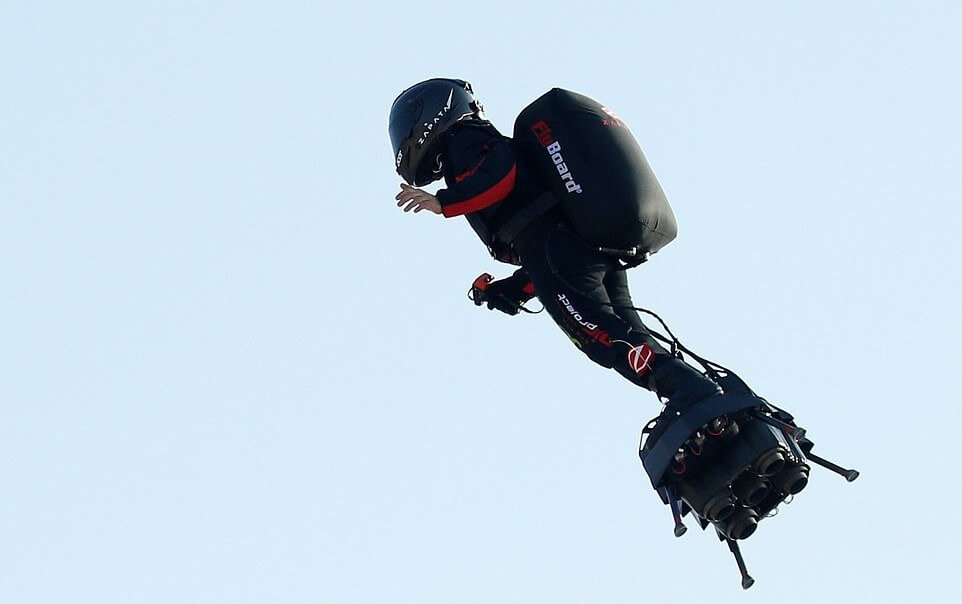What just happened? The inventor of the "Flyboard Air" jet-powered hoverboard has seen his attempt to ride the device across the English Channel end in failure. Franky Zapata crashed into the water about halfway across when he tried to land on a boat to refuel.
Earlier this week, it was reported that Zapata hoped to make the journey from Sangatte, which is near Calais in Northern France, to St Margaret's Bay in Dover, UK, flying 22 miles across the English channel.
Franky Zapata takes off in his bid to cross from France to England on his flyboard. The Frenchman's attempt failed a short time later when he missed a landing platform to refuel.
--- Sky News (@SkyNews) July 25, 2019
For more, head here: https://t.co/COSJht4y8U pic.twitter.com/G15dE73FlW
Zapata was aiming to complete his run in 20 minutes, keeping an average speed of 87 mph while traveling between 50 feet to 65 feet above the water. The Flyboard Air he used is powered by five mini turbo engines, which can produce around 250 horsepower each, giving it a top speed of about 118 mph.
Due to the length of the crossing, Zapata needed to make a single stop to refuel at the halfway point. Ten minutes after taking off, he went to land on a refueling vessel to replace his backpack, which carried 42 liters of kerosene. Waves caused a slight movement of the platform, causing him to miss by "a few centimeters" and plunge into the water. Zapata was wearing a life jacket and didn't suffer any injuries.
"We practiced this maneuver dozens of times in heavier seas, with platforms that moved more, without any problems," said a member of his team.
Landing on a metal structure measuring just one square meter was always going to be difficult, and Zapata had given himself only a 50 percent chance of successfully making the crossing. The inventor blamed French Maritime officials for the failed attempt; they had refused to let him refuel the hoverboard in the air during the journey, forcing him to use the vessel instead.
While Zapata has previously been in trouble with France's Civil Aviation Authority for flying what it says is technically an aircraft too low over populated areas, the country's Ministry of Defense gave him a 1.4 million Euro ($1.56 million) grant in December as it believes the Flyboard Air has military applications.
